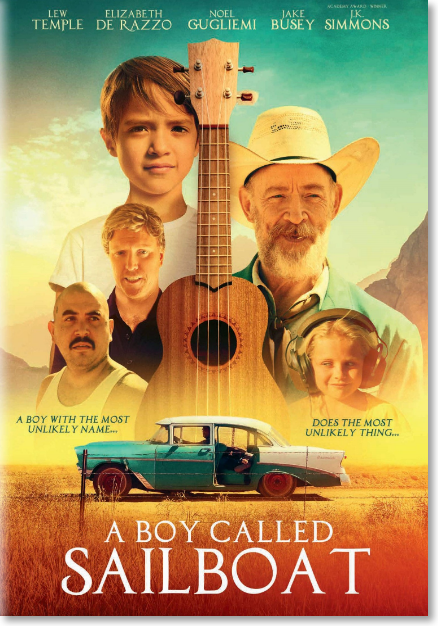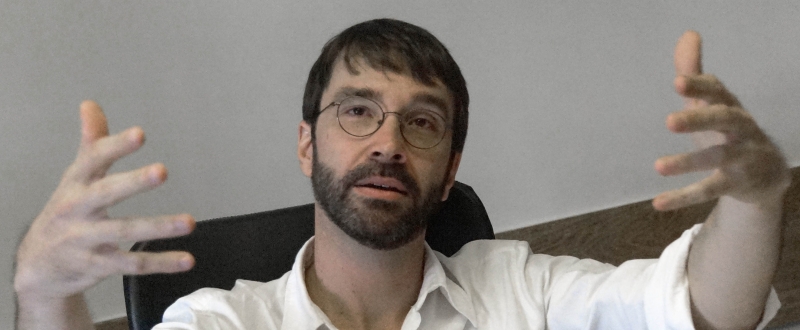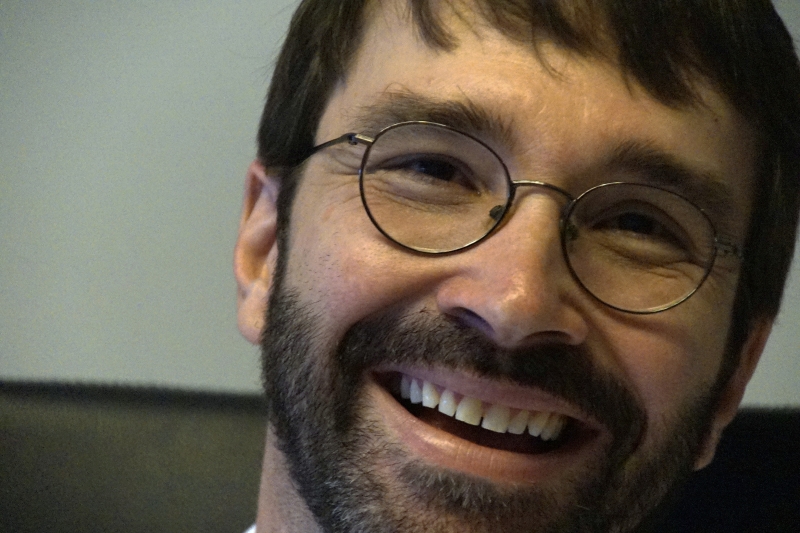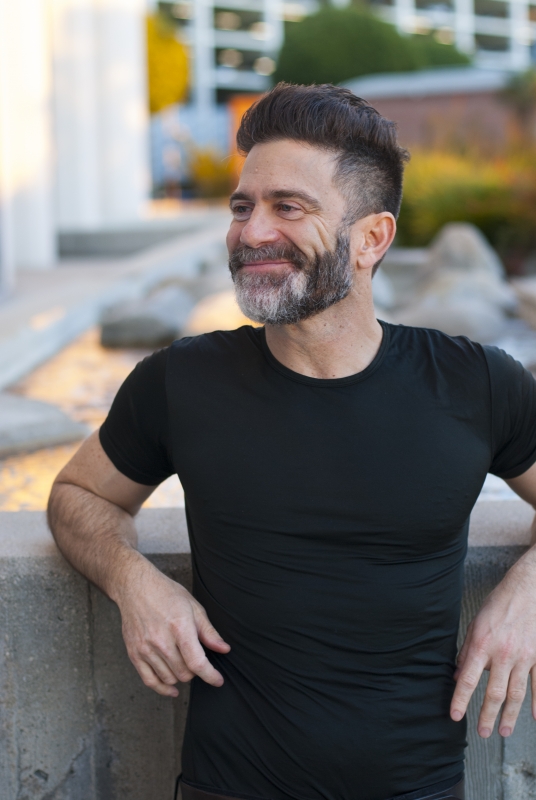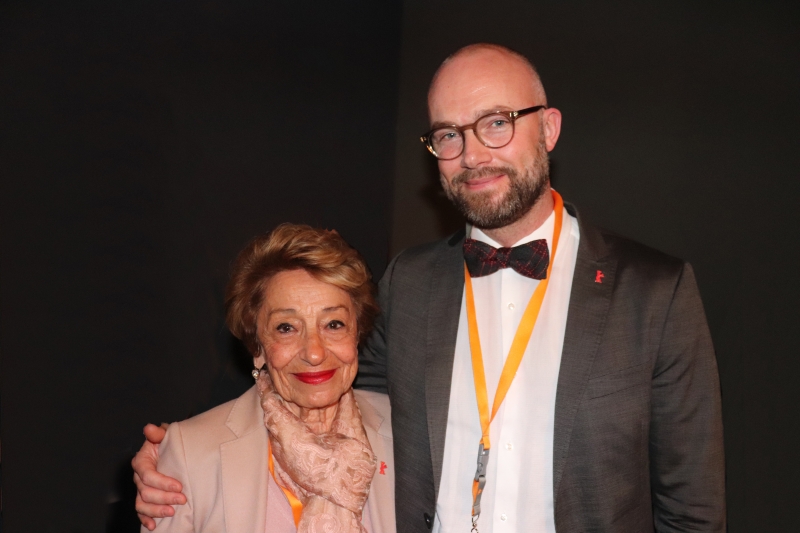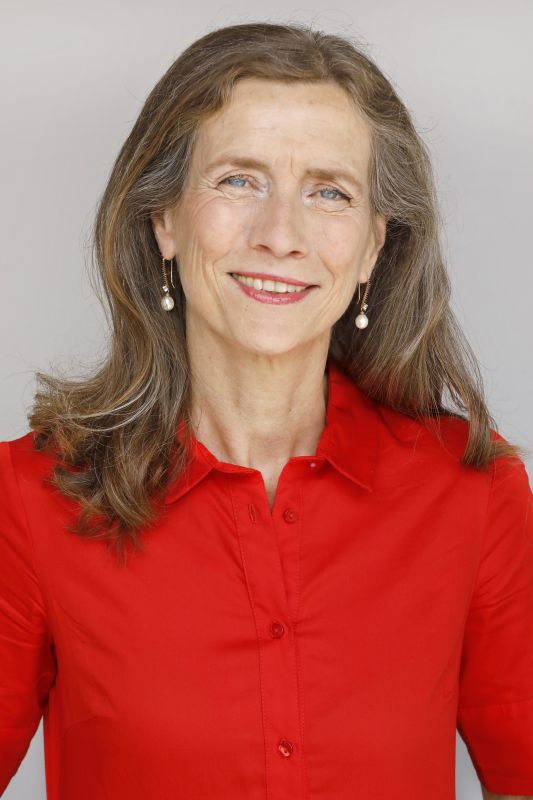Romanian director Adina Pintilie first came to the international film scene with her first short documentaries Don’t Get Me Wrong (2007) and Oxigen (2010); her recent breakout award-winning feature documentary TouchMe Not (2018) won the Golden Bear & Best First Feature at the 2018 Berlin International Film Festival. The film was awarded by a renowned jury that included TIME Magazine's film critic Stephanie Zacharek and composer Ryuichi Sakamoto.
Touch Me Not is a daring experimental mix between fiction and nonfiction, taking an up close and personal look into the lives of four people- Laura, Tómas and Christian- to explore how confidence in one's body, especially when nude, deeply affects their personal lives, sexuality and intimate relationships. Filmed between Romania, Germany, Czech Republic, Bulgaria, France, it runs 121 min. The film held its US premiere at 2018 Toronto International Film Festival (TIFF). US distribution is being held by Kino Lorber and was released in theathers in the US on January 11, 2019. It will be coming to Home Video in March 2019.
How did the idea for the film begin?
ADINA: It started from the premise - which I'm also mentioning at one point in the film - that when I was twenty, I thought I knew everything about intimacy, how relationships work, about eroticism, beauty and body. Today, after years of trials and tribulations, all those ideas, which used to be so clear back then, seem to have lost their definition and grown more complex and unsettlingly contradictory. TOUCH ME NOT was triggered by this self-reflective process. It started with this intention to un-learn everything I've been taught about intimacy - by family, society, education - and to re-discover, with open eyes, how people really relate to each other, how they really live this often so difficult and full of contradictions experience of intimacy.
ADINA CONT'D: The film was born out of a long-term research process where we worked with a mix of professional actors and non-professionals, but whether they were actors or not isn’t in fact relevant. A group of gifted and brave people took the risk to embark together with me in an often very challenging emotional journey, existing in the blurred area between their real biographies and their fictionalized ones. They had the great courage to share with us and with the camera, some of the most vulnerable areas of their intimate lives. We worked with a fusion of personal stories and fictional elements, exploring procedures such as: meetings between real characters and quasi-fictional ones, family constellations, video diaries, reenactments of memories and dreams, staging reality etc. We created a sort of "laboratory" in which fiction often functioned as a safe space, a protective structure that brought us together and allowed us to safely explore sensitive areas, with an authenticity we may have not otherwise accessed through the traditional approaches of documentary or fiction. The shape of the film changed organically along this complex process of self-exploration.
The movie is very revealing and powerful. Was it a difficult film to make?
ADINA: During the work process, we constantly worked with unpredictable elements, with our vulnerabilities, emotions, bodies, with our inner world, and this has been a constant challenge for our entire team and first and foremost for the protagonists of the movie.
How did you go about finding the characters for the film?
ADINA: We began back in 2013 with an extensive casting period of over two years. An atypical casting, similar to a documentary one, where I looked for people with whom I would be on the same „wave length”, who would share a similar interest to mine in exploring intimacy. It has been particularly important, during this search, to feel that my possible collaborators have a very strong emotional motivation, that they are really willing to walk with us down the difficult path of self-exploration and to share their own experience and vision with the audience. The film started, from the very beginning, as an invitation to dialogue, which challenged all of us to re-consider our pre-existing ideas on intimacy and be open to discovering the unexpected ways in which people can connect to one another.
ADINA CONT'D: After the casting came the actual work process, which had several stages. We started with a period of mutual discovery, with video diaries that each protagonist made on the topic of intimacy, diaries that we then discussed with them on Skype and based on which we created new themes and scenes that we would later shoot. It was an essential time, in which we came to know one another more deeply. During that time, an essential element of the process, which is mutual trust, grew. The characters became familiar with the presence of the camera in some of the most intimate moments of their lives. After that came the “official” shooting, the “lab” shooting which I briefly described above. During these segments we worked with a fusion of reality and fiction, personal stories and fictional elements, with a high dose of unpredictability and emotional risk, a time during which none of us knew where the journey would take us. The shooting alternated with extensive periods of editing where, as in a documentary, the footage started to come to life.
Were the up close and personal scenes a challenge?
ADINA: Along the process we realized there was an emotional 'red thread' which connected, at a deep level, all the explored stories. And that the film talks in fact about our search for inner freedom. Each character is facing an acute contradiction between their need for intimacy and their fear of it and is going through a transformative process where they struggle with their own conditioning, their own emotional blockages and self-defense mechanisms, which are often unconscious and keep them from relating to others. They are facing a permanent conflict between attachment and autonomy,between giving and receiving, between the image they have built in their minds about love and the reality of it. Loving another human being without losing ourselves, central dilemma of intimacy, is at the core of my search. As children learn to walk and to become separate human beings, making their way into the life adventure, so the characters of TOUCH ME NOT start to gradually move away from the past, going through a difficult, yet liberating process of ‘cutting their umbilical cord’, to become free and finally be able to meet and possibly love the Other as he/she really is, not their distorted image of him/her.
Do you think culture and personal family issues all come to play with peoples images of their body?
ADINA: My intention – and this is the reason why it was necessary that I appear in the movie as well, because I am part of this quest together with the protagonists – was to discover things, to liberate ourselves from the ideas built into us by our family, society, education, and to discover with openness how people truly relate to each other. It has been a process of re-learning intimacy for all of us. Inevitably, when you start to explore the real world, reality reveals itself in all its complexity and diversity, which is so different from our normative fictions. I did not think in terms of categories before, either. The norm is decided by a majority. And yet there are ways of relating which are different from this majority and which are just as valid. The movie explores life as it is, it's a process of discovery. And the difference from the norm is just as ‘normal’ as any norm.
ADINA CONT'D: There are for instance lots of types of bodies that differ from the classical norm of beauty. For me, Christian, the protagonist with spinal muscular atrophy, is a superb human being and a beautiful body, even though he’s different than the norm. As it is a film about intimacy, it is implicitly a film about the body, about the subjective experience of your own body and the way you perceive the bodies of others. Christian has one of the most harmonious relationships with his own body, even if he’s mostly unable to move. And his relationship with Grit, his partner, their progressive views on intimacy (which you can follow further on their blog kissability.de), the way they explore their sexuality, have been a permanent source of joy and inspiration for all of us.
ADINA CONT'D: This self-reflective exploration, the personal, the intimate implicitly become political, because this opening up of your inner world implicitly has an impact on how you relate with the Other at community level. I think the movie invites you to look at the Other, at your ‘fellow human being’ – who can often be so different from you (a different body, a different vision of the world, a different way of relating etc) – with openness, to accept his/her being-different as just as humanly valid as yours, to develop your empathetic ability to put yourself in the Other's skin and look at things from his/her different perspective. If you are trying to have this self-reflective relationship with yourself and with the Other, to look at yourself with honesty and at the Other with acceptance and understanding, this can have a significant impact in your community. That is why I think Touch Me Not is a very necessary movie, especially in today’s world, where there is so much aggression and intolerance, so many negative emotions that lead to conflict and discrimination. I do believe that by going inside yourself, you can change things at community level.
What was the hardest part for you about telling this story?
ADINA: I had the chance to be joined in this journey by fascinating human beings, who made me question, first of all, my own preconceived ideas. On a certain level, it worked the same way therapy would, meaning that in interaction with the Other you 're-learn' to relate, you readjust your perspective on reality, you become aware of dysfunctional thinking and patterns of behaviour, you discover new things about yourself and others, about ways to relate, about personal boundaries we negotiate every day.
ADINA CONT'D: I realised the way we perceive intimacy, on a profound and most often irrational level, is conditioned by the way we've been brought up, by our family, by the relationships with those around us. There are so many conditionings I became aware of very late and which influence my behaviour and personal relationships without me even being aware of it. I believe this is why this film can be so uncomfortable for some of the audience, because it takes you out of that comfort zone in which you feel you know things, you have certainties, by offering you new, surprising perspectives which destabilize yours. Many of my views on things have been reshaped in the process, for example the ones on disability and sexuality, on sex work, beauty and corporality.
What are your hopes with your film, in terms of reaching people and opening their minds?
ADINA: It is highly inspiring - yet often very challenging - to directly meet the viewers and to see how the film is triggering in them so strong and unexpected emotional reactions. Reactions which are also very different/subjective from person to person. And very often, people are hardly able to articulate in words what they actually feel, it takes a while before being able to verbalize what the film exactly triggered inside. Our dear colleague the psychoanalyst we've been collaborating with for the film - a professional with more than forty years of experience - believes this happens because the film enters into a direct dialogue with the limbic system, our so-called "emotional brain", the oldest area of our brain (right at the back of our head, where it meets the neck), responsible for primal emotions and pre-verbal memory.
You won last year in Berlinale and are back. How has the year been for you since your win? And how have people responded to the film?
ADINA: Immediately after the Berlinale, there has been a surge of divisive feedbacks mainly from film critics and journalists, covering the entire spectrum, from outright praise to very negative. 'There's no good or bad ', as Christian says in the film. Or, in Seani Love's words 'All emotions welcome here'. We very well understand and respect all the reactions the film triggers. It's very interesting to notice though, during the past months of travelling with the film around the world, that actually the reactions of the regular viewers are not so divided, that we encounter a very warm emotional reception everywhere we go. And it's fascinating and heart-warming to see how people open up emotionally after the screenings and start to share with us their own personal experiences and feelings. Whereas the initial, post-Berlinale resistance to the film came mainly from a limited group of specialized film professionals and journalists, whom were probably destabilized by such an unexpected cinematic proposal - which they couldn't fit into any familiar or predictable category - or/and emotionally triggered by the self-reflective process the film often opens in viewers.
ADINA CONT'D: And this makes us realize, once again, that very often, many professionals from the film industry, and especially from the sales, distribution and exhibitors area, tend to underestimate the emotional intelligence of the regular cinema lover. TOUCH ME NOT explores intimacy, an essential aspect of our humanity. And precisely because it's a deeply humanistic film, the experience of our real concrete encounters with the audiences keeps confirming us that TOUCH ME NOT is actually reaching a very wide and diverse public, which embraces it with sensitivity and openness. The film is distributed in over 35 countries, in Europe, North America and Asia and is doing an extensive run in major festivals, the Golden Bear and the Best First Feature awards at Berlinale being followed by invitations to Toronto, Karlovy Vary, BFI London Film Festival, Viennale, Sydney, Istanbul, Moscow, Sofia and many others.
ADINA CONT'D: I do believe TOUCH ME NOT comes at a time when this kind of human dialogue it's deeply needed. In today’s world, where we are facing so much prejudice and we are increasingly afraid of the Other, the film proposes us to 'befriend' this Other, who can often be so different than ourselves. Ideally, the respect towards this Other and the acceptance of difference should be something that ‘goes without saying’, something implicit. Unfortunately, it isn’t. Very often in our day-to-day encounters, power relationships appear, problems of intolerance and judging the others emerge, and so does negative labelling. It so often happens that people are judged just because they have a different body or a different orientation, or a different vision of the world. TOUCH ME NOT proposes you to open up your perspective, to explore ways of seeing which might be different than the so called 'norm', and yet are as interesting and humanly valuable as the normative ones. It invites you to make an exercise in empathy, to put yourself in this Other’s skin. We hope the film and the dialogue it proposes will have an impact, will change something in terms of perception. As Christian says: ‘I hope to change your perspective as a viewer. (...) It's about freedom. Don’t let society tell you who you are, how to live your intimate life! Feel your own feelings, and go your own way.'

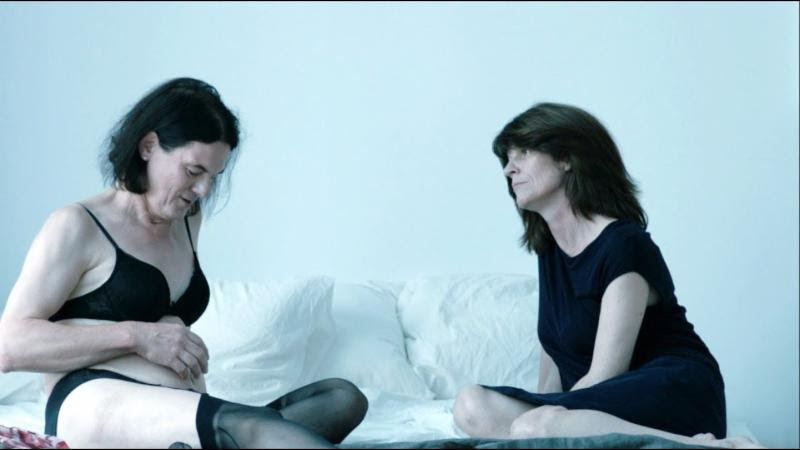
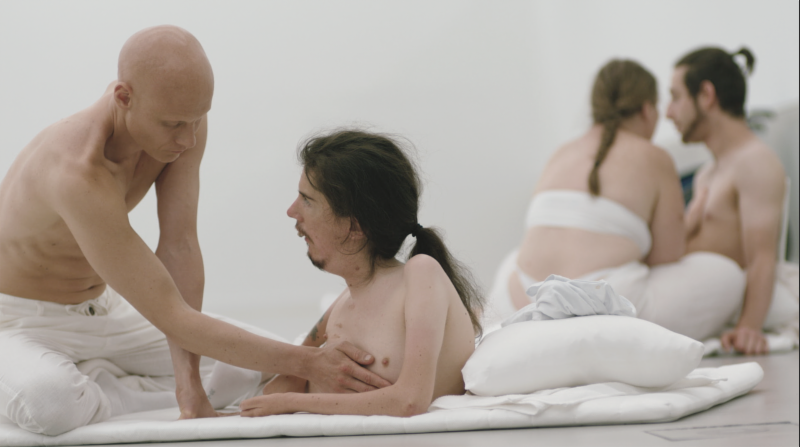
Interview Vanessa McMahon
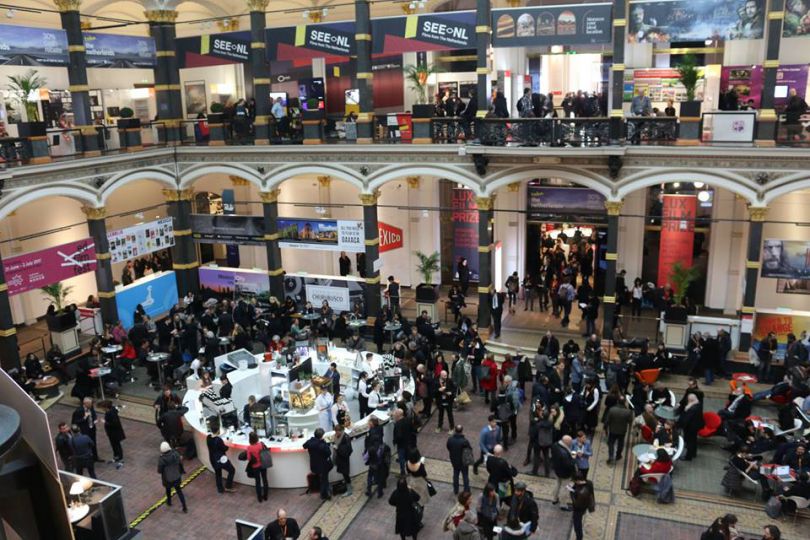

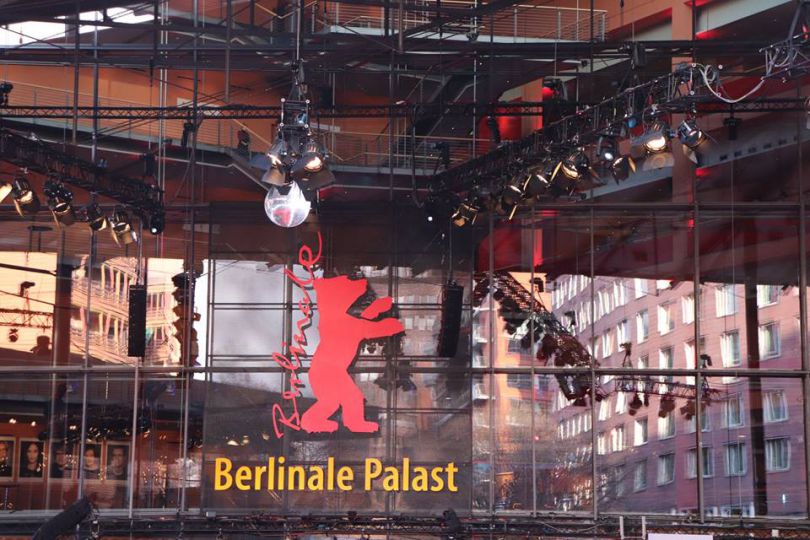

 Chatelin Bruno
Chatelin Bruno 




















